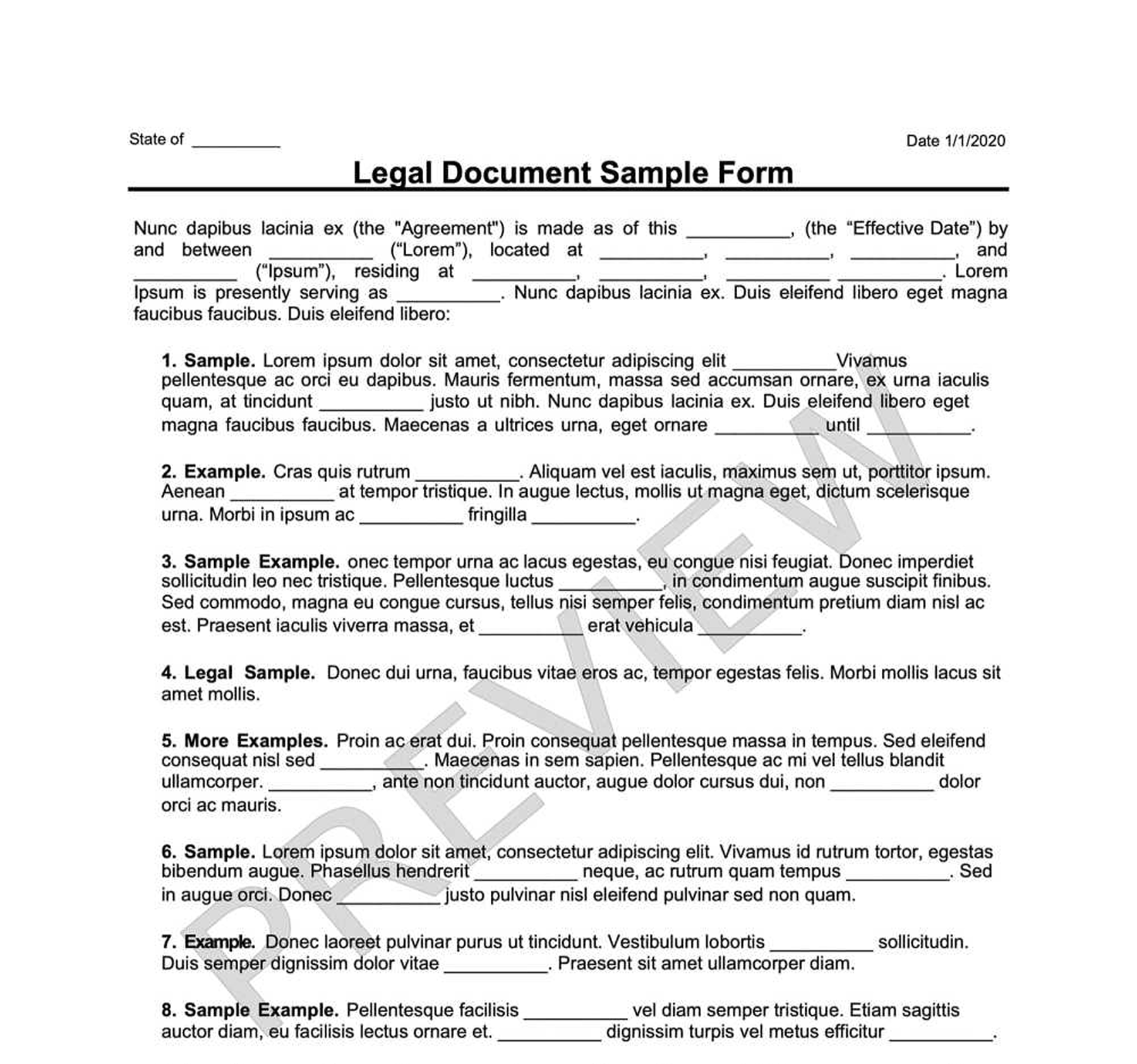Income Verification Letter
An Income Verification Letter provides proof of employment and income and is typically used to apply for a loan or mortgage.

How it Works
Build your selected document.
Answer a few simple questions with step-by-step instructions.
Print & download forms instantly. Sign & make it legal.
What Is a Income Verification Letter?
Most people choose to take on an immense financial burden in real estate and apply for a mortgage. Banks and other financial institutions will then require proof of income and are usually supplied by way of an Income Verification Letter.
Apart from that, renting will commonly require you to provide the same letter to prove you're gainfully employed and receiving regular wages.
What Is an Income Verification Letter?
The employer usually writes the Income Verification Letter. It can be anyone in the company supervising the employee and has the authority to sign such documents. Alternatively, the employee may write the Income Verification Letter on their own and ask the employer to sign or seal the letter to validate it.
The letter only has to contain the necessary information regarding the job, employment duration, and the employee's annual or monthly income.
Other Names for Income Verification Letter
Depending on your state, the Income Verification Letter may also be known as:
- Verification of Salary Letter
- Proof of Income Letter
- Proof of Employment Letter
- Employment Confirmation Letter
- Salary Verification Letter
- Work Verification Letter
Who Needs an Income Verification Letter?
An employed individual applying for a loan, housing, government subsidy program, or anything similar may be required to supply an Income Verification Letter.
Why Use Swyft Forms for Your Income Verification Letter
Customized for you, by you
Create your own documents by answering our easy-to-understand questionnaires to get exactly what you need out of your Income Verification Letter.
Specific to Your Jurisdiction
Laws vary by location. Each document on Swyft Forms is customized for your state.
How to Create an Income Verification Letter with Swyft Forms
Most companies and employers may already have an Income Verification Letter template from the start. If not, having a customized letter for your company will make everything more efficient.
Let Swyft Forms help with our extensive library of attorney-vetted legal forms. The process is fast and easy. All you have to do is fill out our easy-to-understand questionnaire. Once complete, simply download your form as a PDF or Word document from your secure online account.
What Information Will I Need to Create My Income Verification Letter?
To create your document, please provide:
- Employee Details: The legal name of the employee, address, zip code, state, and other contact information.
- Employer Details: The legal name of the company/employer and contact information.
- Date: The date the letter is to be written.
- Income Information: Details of the salary for the most recent period, not just average.
- Recipient Information: The party requesting income verification.
- Method of Delivery: Select how the letter will be sent.
- Signature: The employer or its representative's signature.
Income Verification Letter Terms
- Gross Income: The total of all wages, profits, and other forms of earnings
- Compulsory Payroll Taxes: Social Security and Medicare taxes withheld from the pay
- Inflation: Changes in monetary value over time
- Subsidy: Any government benefit received
- Salutation: Addressing the person whom you're writing to in a letter
- SNAP: Supplemental Nutrition Assistance Program or food stamps
- Eligibility: Having the right to be included in something or a program
Income Verification Letter Signing Requirements
Before an employer signs the Income Verification Letter, they should make sure every piece of information is accurate. The signature makes the document valid. Even though you are not required to have it notarized, you may choose to do so.
What to Do with Your Income Verification Letter?
After the employer signs the Income Verification Letter, the employee would take it to the intended recipient. That could be a potential landlord, bank, or another entity asking for proof of income.
Other Names for Income Verification Letter
- Income Verification Letter Form
- Income Verification Letter Document
- Income Verification Letter Agreement
- Income Verification Letter Contract
- Income Verification Letter Template
- Income Verification Letter Checklist
Who Needs a Income Verification Letter?
Why Use Swyft Forms for Your Income Verification Letter
Customized for you, by you
Specific to Your Jurisdiction
Why choose Swyft Forms?
Create professional documents for thousands of purposes.
Make unlimited documents and revisions.
Our documents are vetted by lawyers and are applicable to all 50 states.
